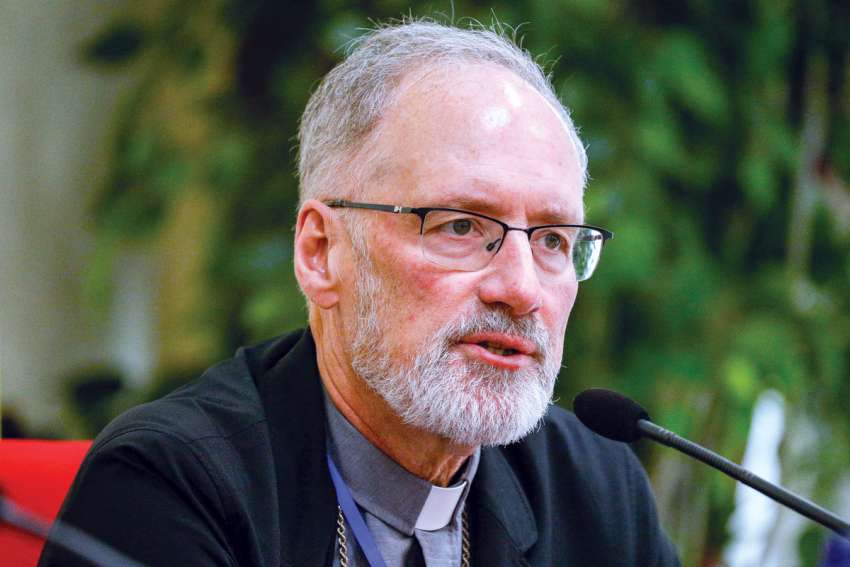In my recent conversation with Gatineau Archbishop Paul-André Durocher, he said that Catholic colleges and universities have a role to play in creating safe environments and in improving the victim-survivor experience when coming forward with complaints. Researching the experience of those who have made complaints and how they think it should be improved would assist Church leaders, according to Durocher, in developing policies and procedures, adding, “I would love to see that kind of research being done.”
Not only are our bishops pulled in many directions, but there is currently lacking a pastoral bridge of communication between bishops and victim-survivors. In our litigious world, sadly, legal considerations often overshadow pastoral ones. On advice of legal counsel, for example, a bishop may be advised not to speak to victim-survivors who are considering suing their diocese.
I agree with Archbishop Durocher that Catholic colleges and universities could help play a vital, neutral role in facilitating the communication of victim-survivor needs to bishops. Not only could they help by researching the experiences of victim-survivors who have come forward with complaints, but they could also provide centralized databases of professionals and other resources specific to the needs of clergy sexual abuse victim-survivors.
For close to a decade, I have been pestering various organizations to take on the role of providing such specialized resources. One of these organizations, whose welcome to me personally has been very much appreciated, is the Southdown Institute north of Toronto.
Southdown has provided care to priests and religious men and women for a variety of health concerns, including to perpetrators of clergy sexual abuse. Those participating in residential programs have access to psychologists, psychotherapists, registered nurses, spiritual directors, a fitness instructor, a registered massage therapist and a dietician. Southdown, though, according to its previous president, Fr. Stephan Kappler, is not able to expand its mandate to provide such specialized services to victim-survivors of clergy sexual abuse. With that door closed, it appears that another door may be opening at Saint Paul University’s Centre for Safeguarding Minors and Vulnerable Persons (CPCS).
Dr. Mariéle Wulf, director of CPCS, recently told me she is working on building a network of canon lawyers, civil lawyers and psychologists to whom the centre could refer victim-survivors. She also told me she is alone with a part-time assistant to tackle her ambitious goals.
I shared with Dr. Wulf a “proof of concept” website (listeningplace.ca) showing that it would be helpful also to develop a list of priests/pastors and spiritual directors who are specially trained and available to accompany victim-survivors. It has proven challenging to come up with such resources as not only some bishops but some priests also fall under the fear of litigation. “What if this person accuses me of abuse?” is a concern one priest shared with me.
Archbishop Durocher also thought that centralizing lists of such resources could prove valuable. Larger dioceses, for example, might have their own list of local resources to whom they might refer victim-survivors. Smaller dioceses, though, might not have access to such resources.
From my research, it is my opinion that, in Canada, the best place to create a permanent repository of resources for victim-survivors of clergy sexual abuse would be Saint Paul University’s CPCS. With only one full-time employee, however, the development and maintenance of such lists would be impeded.
I respectfully suggest that the Canadian Conference of Catholic Bishops establish a close working relationship with CPCS and assist with funding this centre on a level to replicate the resources available at the Southdown Institute. I would also invite leaders of other Catholic colleges and universities to consider how to assist in this important effort.
(Lea Karen Kivi is the president of Angela’s Heart Communications Inc.)

